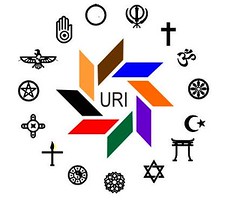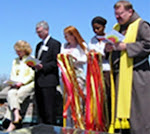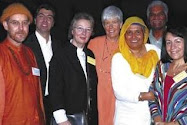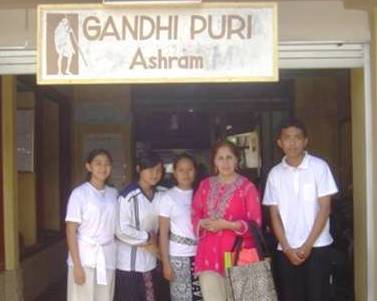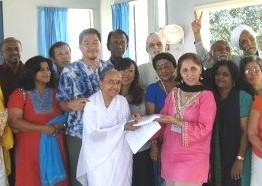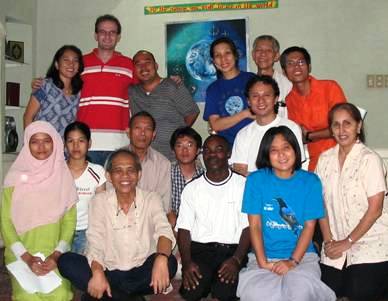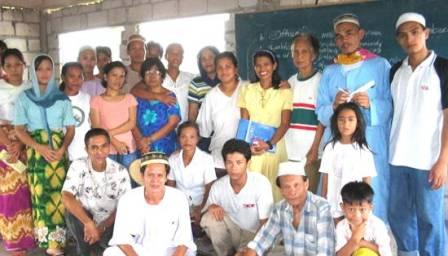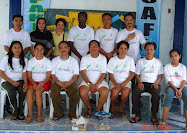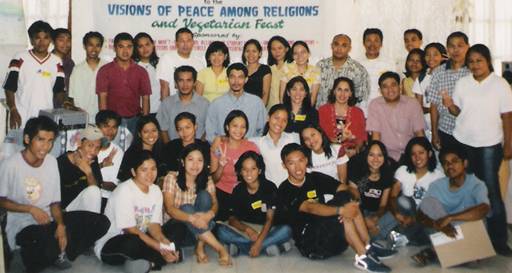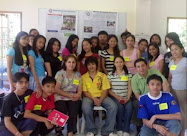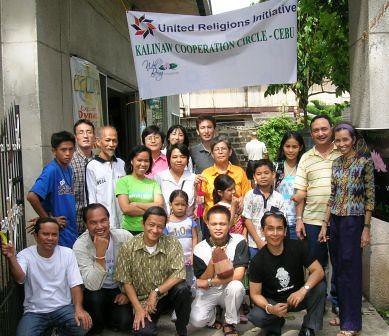 by Ms. Belinda Espiritu (Protestant Christian)*
by Ms. Belinda Espiritu (Protestant Christian)*
Turkey is a country where culture, civilization, nature, and history blend to create a fabulous and mystical aura. Its natural environment is delicately interwoven with a history that includes Roman, Byzantine, and Ottoman times. As a country where many places are biblical and sacred, Turkey is also considered a holy land. It is generously endowed with divine gifts of all sorts of scenic wonders and is a unique bridge between Eastern and Western civilizations.
My three-week sojourn in this beautiful land with my husband in February of this year had a two-fold purpose: to go on a spiritual journey and to pursue our respective academic interests, that is, to engage in intercultural communication and the study of Turkish culture and communication behavior and to delve into Islamic spirituality and philosophy.
From Islamophobia to Islamophilia
At a time when Islamophobia is being played up by the media, a look at how beautifully Islam is practiced in Turkey can turn over Islamophobia into “Islamophilia”, a word I coin to refer to a deep appreciation of and even love for the Islamic religion, which can be experienced not only by Muslim converts but also by Christians and others who embrace other religions or philosophies in life.
Some insights towards inter-religious solidarity and a better society
The insights I gained from this trip has implications for other societies particularly the Philippine society. These insights have been enriched by the ideas from Sufi Wisdom, a magazine which propagates Islamic spirituality, and by the ideas of a Filipino Christian humanitarian activist named Howard Dee.
In our society, we need to bring back an appreciation of silence and contemplation in our lives.
Our society which is heavily influenced by the secularizing forces from the West has become filled with noises from the media and from those we create that we failed to listen to “the sound of water drops or rain drops” or “gaze at a nature’s work of art” to appreciate life’s mysteries, or to contemplate the Divine Creator of these things. A Sufi master in Turkey wrote about this poignantly: “For those who can hear, there are many different songs that emanate from a delicate flower, a singing nightingale, and a flowing river. Nights tell countless stories. For those who are aware, how many morning breezes are there those arrive with the winds?” (Topbas Efendi, Fall 2005, p. 21).
We have neglected a sense of restraint and sobriety in our society. We need to bring back and cultivate a sense of modesty, moderation, gentle manners, and a sense of discipline in our daily conduct.
Modesty, chastity, and refinement of manners are fostered and valued by the Turkish people. In our very free society, we need to put a sense of restraint and discipline in the way we dress up, the way we talk, the way we behave towards one another particularly with the opposite sex, the way we behave towards our surroundings and country as a whole. Our spontaneity as a people needs to be balanced by a sense of restraint and refinement. Refinement of manners entails living more seriously and intensely our spirituality as a people – which is both Christian and Muslim. Living more seriously our spirituality as a people will result into a greater respect and love for God and one another; more gentleness in our speaking and acting; more modesty in our comportment; and more refined behavior in dealing with one another. These will further lead to the elimination of discord, division, bickering, graft and corruption, and insensitivity to the plight of the poor around us.
 We need to emphasize Muslim-Christian unity at a time when some malevolent forces try to foment conflict between these two main religions in the world.
We need to emphasize Muslim-Christian unity at a time when some malevolent forces try to foment conflict between these two main religions in the world. At a time when Islamophobia is being played up by the media, the essential nature of Islam which is that of a religion of love and mercy needs to be shown to the world. Instead of pitting one against the other, Christians and Muslims need to affirm their unity despite their differences in beliefs and practices.
My trip to Turkey was made possible through the kindness of some very good and pious Muslims who treated us with great kindness, generosity, and hospitality. My immersion in Turkey enabled me to eat with many Muslim sisters, talk and share with them about different things, express love and affection for them through hugging and kissing, and even pray with them. These made me feel a sense of oneness with all Muslim brothers and sisters not just in Turkey but all over the world. By sharing this experience, I hope that we can better appreciate the need to see humanity as “one community, one body, one brotherhood” (Sezai, Jan./Feb. 2007, p. 13).
We need to foster sensitivity to the needs of the poor and the oppressed, and to work for social justice – even to the point of institutionalizing zakat or charity to the poor.
One painful truth in today’s world is the exploitation of the powerful against the helpless which have reached dangerous proportions. Sufi Islam in Turkey benevolently promoted the establishment of soup kitchens for the hungry and the giving of charity to the poor and the needy. In the Philippines where Christianity is the predominant religion, the Catholic and Protestant Churches together with the business sector must assist government to reform itself,
“to bring about good and humane governance, to render public service beyond self, to provide our poor a preferential advantage with dignity, to enforce the law fairly and fearlessly, and to cleanse itself of all that is unjust and corrupt” (Dee, 2003, p. 13). There is an urgent need to
“save our poor from their degradation, return to them their dignity and for their children a future….” (Dee, 2003, p. 13).
These insights and recollections from my three-week sojourn in Turkey, I hope, can provide inspiration for us to go on our goal of fostering inter-religious solidarity at the local and international levels and of building a more just, a more refined, and a more spiritual Philippine society.
*Belinda F. Espiritu is an assistant professor of English, Literature, and Humanities at the University of the Philippines Cebu College and is a Protestant Christian. She is currently pursuing her Ph.D. in Communication at the University of the Philippines in Diliman, Quezon City. Send feedback and comments on this article to espiritubelinda@yahoo.com
 by Ms. Belinda Espiritu (Protestant Christian)*
by Ms. Belinda Espiritu (Protestant Christian)* We need to emphasize Muslim-Christian unity at a time when some malevolent forces try to foment conflict between these two main religions in the world.
We need to emphasize Muslim-Christian unity at a time when some malevolent forces try to foment conflict between these two main religions in the world. 